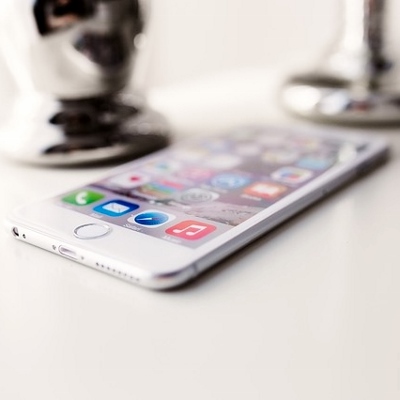 Every eleven year old would love for their parents to go out and buy them the latest iPhone so they can take it to school and show everyone how cool it is. The surge of wireless technology has become a major crutch to communication for lots of active adults and parents, so of course the kids want to get it on the actions. Schools and organizations have developed rules not/permitting children to bring phones to school, based on their age, grade level and whether it is a smartphone or “just a phoneâ€. It’s widely accepted that children can bring a non-smartphone to school in their backpacks as a lifeline to call a parent or guardian in the event of an emergency. However, teachers are discovering that smartphones in the classroom can cause great distractions and minimize the ability for students to learn when they are adapted to having a digital online encyclopedia on at all times.
Every eleven year old would love for their parents to go out and buy them the latest iPhone so they can take it to school and show everyone how cool it is. The surge of wireless technology has become a major crutch to communication for lots of active adults and parents, so of course the kids want to get it on the actions. Schools and organizations have developed rules not/permitting children to bring phones to school, based on their age, grade level and whether it is a smartphone or “just a phoneâ€. It’s widely accepted that children can bring a non-smartphone to school in their backpacks as a lifeline to call a parent or guardian in the event of an emergency. However, teachers are discovering that smartphones in the classroom can cause great distractions and minimize the ability for students to learn when they are adapted to having a digital online encyclopedia on at all times.
But when it comes to your special needs tween, the smartphone can become the greatest asset he (or she) may have. Here is why…
All kids would love to have a smartphone in class, but it’s likely to play games or engage on social media. Depending on your child’s special need, his smartphone can be programmed with apps that are not all fun and games, but also productive and good for building communication skills. For example, there are apps designed for nonverbal children to be able to speak by typing, and others to help develop list making and goal setting skills. (Friendshipcircle.org posted a good list of apps for reference)
Children who wander, or are free spirited can be GPS tracked by the smartphone in their backpack. Not only are family locator apps perfect security for just about every member of the family, there are some apps that can be programmed with alarms and reminders for your child to check in and report their status, or instantly alert of an emergency.
Kids don’t always know what words to choose when describing their location or situation. Phones that have both front and rear facing cameras allow kids to snap their surroundings and record video and audio to send to a parent so they can see exactly what is happening. Also, if the phone is ever found without the child, there may be photos of the child and his recent activities on the camera roll for identification. Encourage your kids to take selfies and pics when they reach landmarks on their independent travels.
Fitbits and other health trackers can prove invaluable to children with physical conditions. Parents can log on and see their child’s vital signs in real time when they are not home.
If your child’s school does not allow smartphone use in the classroom, and you feel your child needs one for one or more reasons, you can talk to your school’s Guidance Counselor about having the special permission written into his Individualized Education Plan (IEP).
Computers are the future, enable your children now.










